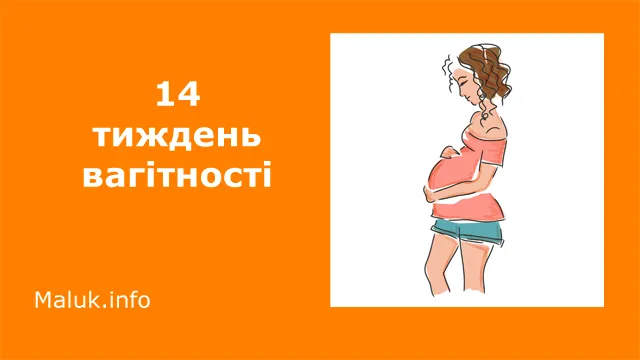Pregnancy calendar: 14th week of pregnancy
Pregnancy calendar by week. An experienced doctor tells how a child develops in the womb and what changes occur in the pregnant woman’s body. All the most important things about the 14th week of pregnancy
Changes in your body:
With the beginning of the second trimester of pregnancy comes the easiest and most pleasant period. I suggest you spend more time for yourself: go for walks in the fresh air, listen to your favorite music, meet with friends. There are studies that confirm the positive effect of calm classical music on the course of pregnancy and the development of the child.
During the second visit to the obstetrician-gynecologist, you will learn about the results of the tests:
- General blood test. If the level of hemoglobin in the general blood test is less than 110 g/l, this condition is called anemia. The doctor will draw your attention to the need to eat food containing iron, for example, green vegetables, meat, legumes, citrus fruits. In case of pronounced anemia, the obstetrician-gynecologist will prescribe iron preparations
- Blood group and Rh factor analysis. If you have an Rh-negative blood group, and the child’s father has an Rh-positive blood type, and if you do not have anti-Rhes antibodies, the obstetrician-gynecologist will discuss with you the need to introduce anti-Rhes immunoglobulin at 28-32 weeks of pregnancy.
- General urine analysis or express test for the presence of protein. An extremely important study, because the kidneys during pregnancy must work for two. Also, the presence of protein in the urine is a condition that requires special attention and treatment.
An obstetrician-gynecologist should prescribe a second ultrasound examination between 18 weeks and 20 weeks and 6 days of pregnancy.
How does the baby grow?
The child is actively moving, his muscles and reflexes are developing. The child’s facial expressions improve: he can squint, make faces. If you are lucky, then at the first ultrasound examination you could see how the baby sucks the thumb.
In children, fluff (lanugo) appears, which covers the body.
Organs develop: the liver begins to produce bile, the pancreas secretes insulin and glucagon – hormones that regulate the assimilation of glucose (sugar necessary for life) by cells, the spleen also begins to produce red blood cells (erythrocytes – cells that carry oxygen).
Since the external genitalia have developed sufficiently, during the first ultrasound, the doctor may have been able to discern the sex of the baby. By the way, you have the right not to know the gender of the child. However, many want to find out as soon as possible, so to speak, it is better to prepare. Sometimes it is not possible to see for sure, so I advise you to be patient until the next ultrasound.
Author: Olga Letnyanchyk, doctor
Read also:
– Pregnancy calendar: from 1 to 40 weeks

